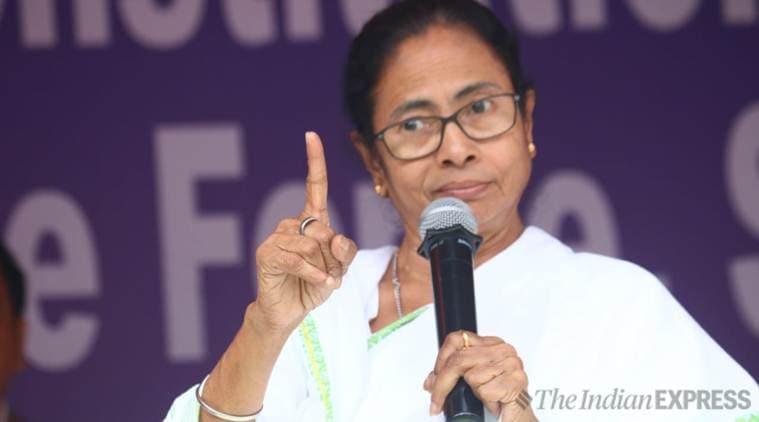
While Mamata Banerjee’s street theatre in Kolkata was the main spectacle of the week, the much quieter entry of Priyanka Gandhi Vadra into the fray also drew attention. Accompanying her husband to an appointment with the Enforcement Directorate was clearly a statement—one that can be confidently made, since the government has failed to pin anything on him in five years. Later, NDTV took viewers on a tour of the party office in Delhi, indicating an empty chair where Gandhi Vadra would sit to take her first meeting as campaign head of eastern Uttar Pradesh.
And, like in a 20th century before-and-after ad, stills followed showing her populating the chair, and listening to party workers who had populated other chairs. A statuette which appeared to be of Ganesh on the mantel behind her invited speculation on social media: how soon would it take for it to be identified as evidence of the soft Hindutva of the party? But then, evidence of Hindutva of a more vigorous nature has been provided by the new Congress government in Madhya Pradesh, which has bagged three people under the National Security Act on suspicion of cow slaughter. This is TINA made visible, continuing the legacy of Shivraj Singh Chouhan’s government, which had bagged 22 under the NSA.
But in the first half of the week, all eyes were on Kolkata, where Mamata Banerjee was publicly refusing to allow the CBI to bag her police chief. Indeed, the operation was illegal, since West Bengal is one of the states where the CBI must seek prior permission. It was also improper in the frame of federal relations, since it’s basic etiquette to inform a state government before initiating action against its senior officer. And it was politically imprudent, besides, to push to the streets a politician who built her career as street-fighter against the Left Front, which itself was adept at street violence.
The result was that for 24 hours, there was almost no room for the Prime Minister on the national channels. Banerjee sucked up the airtime like oxygen, with even her morning walk (up and down the dharna stage) being televised. The event turned into a gathering of the tribes, with the arrival of good old boys like the poet Joy Goswami, who had lent his weight to the Nandigram agitation in 2007. And since it was a Kolkata agitation, lots of revolutionary music followed. Not only did the show reduce the airtime that the BJP got as it launched its West Bengal campaign for the general election, it eclipsed a very sizeable meet organised by the Left Front at the Brigade Parade Ground.
Though the BJP has lost face in Kolkata, it has been busy in the hinterland.
After his chopper was prevented from landing for meetings in the Dinajpur districts and Bankura, Yogi Adityanath chose the land route to reach West Bengal. Prudently, he made landfall in Jharkhand and reached Purulia by road for an election meet on Tuesday. But he chose to tweet in Bengali en route, and stumbled, reports Zee’s Bengali service. In a message lauding the land of Bengal, written in rather awful ’sadhu’ Bengali (the chaste diction usually reserved for thundering newspaper editorials), he referred to Swami Vivekananda and Swami Ramakrishna. The redesignation of the latter, who has never been accused of swami-hood, irritated the Bengalis, according to a local TV channel.
On social media, the cop vs cop faceoff in Kolkata recalled the hostility that the CBI had faced from local Special Police Officers in Sukma, but that was really not a comparable incident. Kolkata itself offered a contrast in 2007, when the Park Street police put a couple of Army officers in the cooler on the charge of misbehaving with a woman at a New Year’s Eve party. In the wee hours the police station, in the most upmarket part of the city, was ransacked and its personnel beaten up by Army men, who had come to liberate the officers.
The week has closed with the adjournment of both houses of Parliament on Friday, over The Hindu’s revelation that the Defence Secretary had objected to the PMO pursuing “parallel negotiations” with the French. In the political arena, the post-truth era is over, in the sense that polite euphemisms are odious.
There is startling clarity in Rahul Gandhi referring to the Prime Minister as a “thief”, the Prime Minister’s speech in the House, Mukhtar Abbas Naqvi referring to a “supari” taken by the Congress, and HD Kumarawsami charging that the Prime Minister’s preaching and practice are completely different—it looks like this campaign will feature even freer speech than in 2013-14. And this time, it’ll be a vituperative conversation between the two sides, not a dramatic monologue.